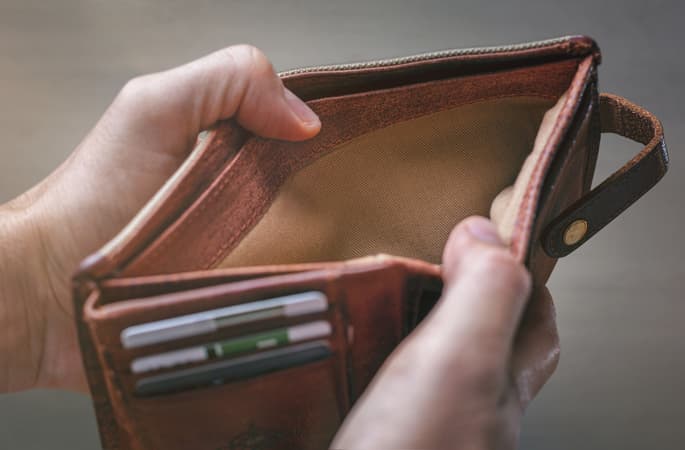Jump to a section
Starting a small business is hard enough, and establishing strong credit can be even more daunting. In this blog post, we will guide you through the essential steps to begin building your business credit, as well as strategies to speed up the process and achieve results faster. You'll learn practical actions to set yourself up for success and learn how to keep improving your credit score as your business grows.
Why is it important to establish business credit?
A solid business credit score is essential for your company’s financial health. Not only does it help secure financing when you need it, but it also directly affects the terms and rates you receive from lenders, suppliers, and other business partners.
-
Financing approval: A strong business credit history can improve your chances of getting approved for loans and other credit. Lenders will often review your business credit report to assess your creditworthiness.
-
Better financing terms: A good business credit score can lead to lower interest rates and more favourable repayment terms, saving you money in the long run.
-
Supplier relationships: Having a solid business credit history can help you negotiate better payment terms and discounts with suppliers, improving your cash flow and operational efficiency.
-
Peace of mind: Knowing your business has a solid credit foundation can give you peace of mind, allowing you to focus on other aspects of running your business.
Steps to start building your business credit score
Now that you know why having a good business credit score is important, follow these steps to get your credit journey underway:
1. Register your business: Make sure your company is registered with Companies House and has any licences and permits it might need.
2. Open a business bank account: Don't mix personal and business money. Open a dedicated account just for your business transactions.
3. Set up your business credit file: Contact credit reference agencies like Experian, Equifax, and Creditsafe to start a credit file for your business.
4. Apply for a business credit card: Apply for a business credit card and use it responsibly. Good behaviour gets reported and builds your credit. The Capital on Tap Business Credit Card offers up to £250,000 in credit and 1% cashback on all card purchases, helping you build business credit while earning rewards.
5. Establish trade credit with suppliers: Work with suppliers who offer payment terms (like 30 days). Making those payments on time helps you establish a payment history that boosts your business credit.
Tips to build your business credit fast
Now we've established your business credit score, let's take a look at a few steps you can take to grow and protect it over time:
-
Pay bills on time — or early: This is the biggest factor in building business credit. Even better? Paying your credit bill a few days early can sometimes improve your rating.
-
Limit credit applications: Avoid multiple credit applications, as each hard search can negatively impact your credit score. Apply only when necessary and be confident in your approval chances.
-
Use your credit, but don’t max it out: Regular, responsible use of your business credit shows lenders you can manage borrowing wisely. Keep usage below your credit limit.
-
File taxes and accounts on time:Accurate and timely filing can positively impact your business credit rating.
-
Avoid using personal lines of credit: Use business-specific credit products and services to build business credit without affecting your personal credit.
-
Monitor your business credit reports: Regularly review your credit reports to identify and correct any discrepancies, ensuring your credit score accurately reflects your financial behaviour.
-
Dispute errors in your credit file: Regularly check your credit reports and dispute any inaccuracies to ensure your credit history is correctly represented.
-
Borrow from lenders that report to credit bureaus: Ensure your lenders report to credit bureaus to reflect your positive payment history on your credit report.
-
Avoid County Court Judgments (CCJs): Prevent CCJs by managing debts responsibly. A CCJ can stay on your credit file for six years and severely impact your creditworthiness.
How long does it take to build business credit?
Building business credit can take a few months to a year, depending on the type of business you have and your financial practices. There is no set time and it will depend on the factors discussed above, including the type of business you have and your payment history. The key is consistency. By following the right steps and paying your bills on time, your business will steadily build a solid credit history.
Does your personal credit score matter for your business?
Your personal credit doesn’t directly impact your business credit score, but it can still play a role in your business’s financial opportunities — especially when you're just starting out. Many lenders, investors, and suppliers will check your personal credit to gauge your overall financial responsibility.
Additionally, you may be asked to sign a personal guarantee when applying for business credit. This means you're personally responsible for repaying the debt if your business can’t. A low personal credit score could lead to rejections or less favourable terms, so keeping it in good shape supports your business credit-building efforts.
The bottom line
Building business credit takes time and effort, but by following the right steps, you can lay a strong foundation for your company’s financial future. Start by registering your business, opening a dedicated bank account, and applying for credit. To speed up the process, pay your bills on time, monitor your credit reports, and establish good relationships with suppliers. A strong business credit score opens doors to better financing, improved supplier terms, and more opportunities for growth. And while your personal credit score doesn’t directly affect your business credit, maintaining a healthy personal credit score can help support your business’s financial stability.
Frequently Asked Questions
Can I build business credit with bad personal credit?
Yes. Even with bad personal credit, you can build business credit by applying for a business credit card, asking suppliers to report payments, taking out small business loans from lenders that report to credit bureaus, and using a business credit monitoring service.
How do I build credit for a brand new business?
Start by registering your business, opening a dedicated business bank account, and applying for a business credit card. As you make on-time payments, your business credit profile will grow, allowing you to access higher credit limits and better financing options.
Should I apply for a business credit card to build my business credit?
Yes, applying for a business credit card is a great way to build business credit. The Capital on Tap Business Credit Card offers credit limits up to £250,000 and uncapped free 1% cashback on top of unlimited cards for your employees and no annual fees.
Apply today to grow your business while earning lucrative rewards and building business credit.
What should I do if I find errors in my business credit history?
If you find errors in your business credit history, contact the credit reporting agency and provide evidence of the inaccuracies. The agency will investigate and make corrections as needed.
How can I track my business credit score?
Regularly monitor your credit score through agencies like Experian or Equifax. Staying on top of your score allows you to address any issues or errors before they affect your business’s ability to secure financing.











